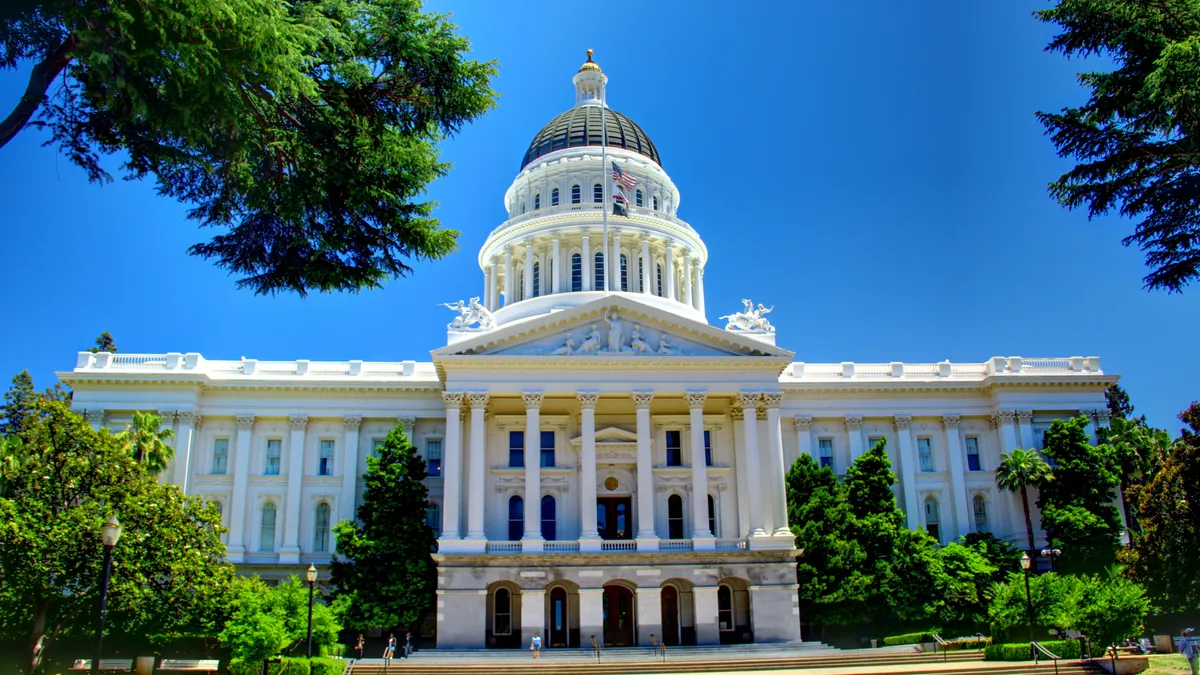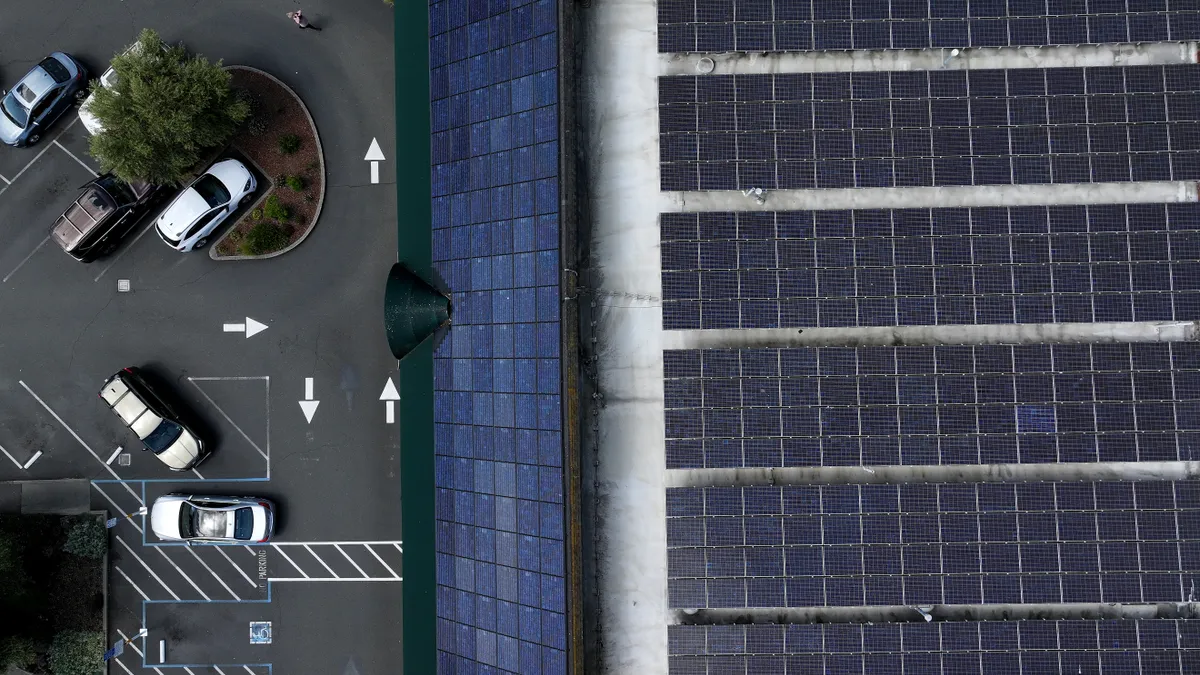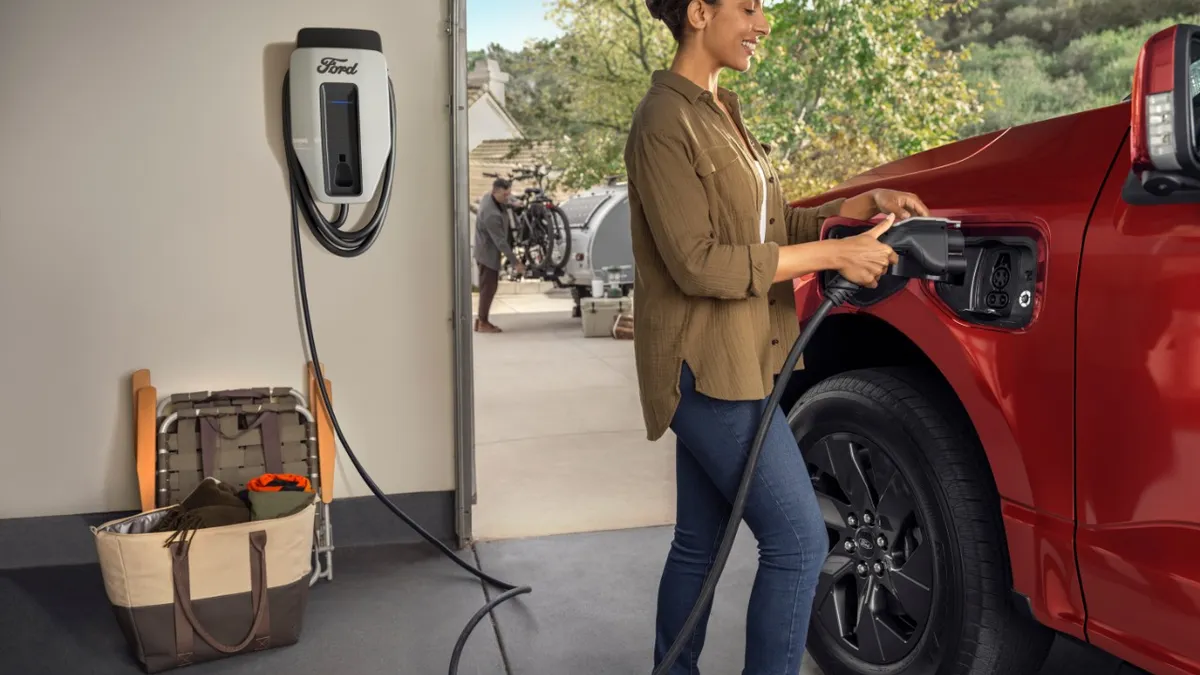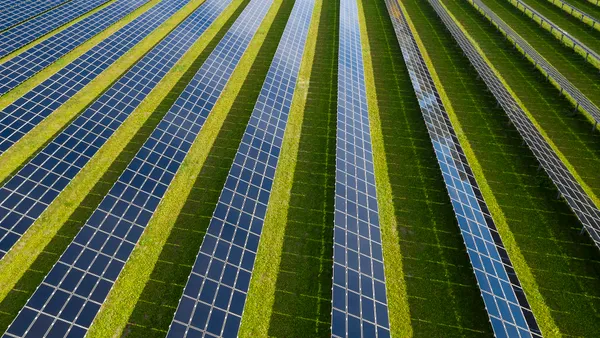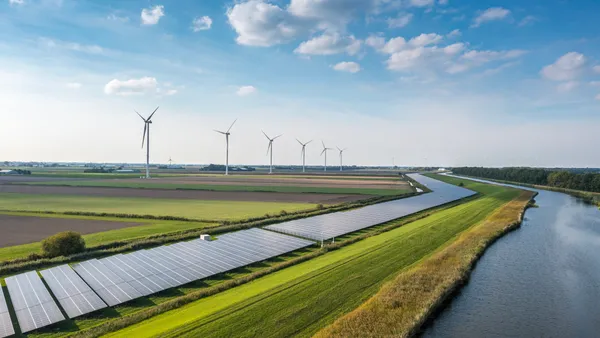Dive Brief:
- California legislators late on Friday passed a bill to raise the state's renewable energy portfolio standard to 50% by 2030. If signed into law, it would immediately become one of the most ambitious renewable mandates in the nation.
- SB 350, which also calls for a doubling of efficiency goals for buildings, originated from an executive order issued by Gov. Jerry Brown in January. It now heads to his desk to be signed into law.
- The bill initally also called on the state to cut its petroleum use in half by 2030, but those provisions were stripped from the final version after hesitation from more moderate Democrats in the state Assembly and an aggressive public relations campaign from the oil and auto industries.
Dive Insight:
California legislators were busy in their final hours of the legislative session on Friday, pushing through a bill that may soon set the nation's second-highest renewable portfolio standard.
Environmentalists welcomed that development, while also expressing some disappointment at what might have been. After pushback by moderate lawmakers in their party, state Democratic leaders stripped provisions from the final version of SB 350 that would have cut petroleum use in half by 2030.
Another climate bill — SB 32 — also failed to pass. The bill would have codified in state law a goal to reduce greenhouse gas emissions 80% blow 1990 levels by 2050. That goal was also set in January through an executive order by Gov. Brown. The order remains in place for now, as does the goal for reducing petroleum use, but both could theoretically be rescinded by Brown's successor.
Climate policies were a clear focus in the last weeks of the legislative session. Earlier in the month, legislators passed SB 185, which directs the state's massive pension funds to divest from coal stocks. It also awaits Brown's signature.
California's investor-owned utilities are well on their way to meeting the state's current 33% renewables by 2030 mandate, PV Magazine points out. Utility officials and energy analysts have told Utility Dive the companies are capable of meeting a 50% renewables goal by 2030 despite the challenges.


